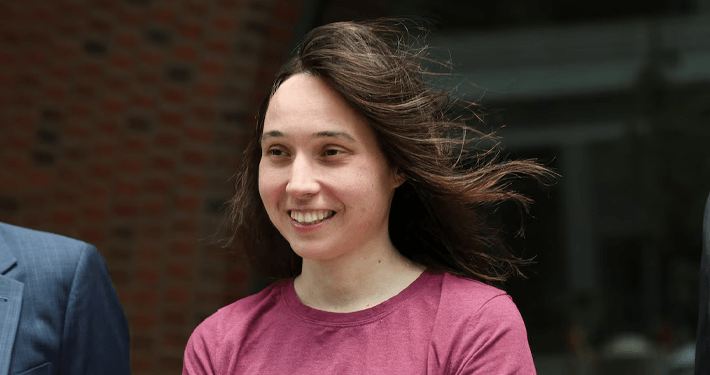A Boston federal court on Thursday approved the bail of Kseniia Petrova, a Russian citizen, who was arrested on February 16 after customs officials caught her with undeclared frog embryos and embryonic samples.
Customs and Border Protection agents took Ms Petrova, who was returning from France, into custody for attempting to enter the U.S. without obtaining clearance for the biological materials in her possession.
The Russian scientist worked as a researcher at Harvard’s Kirschner Lab, known for cell and development research which includes cancer research.
The matter soon escalated after the Justice Department charged her with one count of smuggling items to the U.S. in May, noting that the scientist initially denied the frog embryos in her luggage before confessing to the allegation.
All of Ms Petrova’s pleas that it was her first time travelling with biological materials were dismissed as the agents said they found a message on her phone from her Harvard colleague advising her to declare the samples.
“Having no prior experience transporting biological samples,” wrote Ms Petrova’s lawyer, arguing her client “was unfamiliar with U.S. customs requirements regarding these samples. She simply placed the samples in her luggage and did not declare them to CBP at the time of her entry.”
Prosecutors countered the scientist’s argument with text messages from her colleague urging her to get the government’s “permission” to bring in the clawed frog embryos.
“if you bring samples or antibody back, make sure you get the permission etc. Like that link I sent to leon-/group chat about frog embryos because TSA went through my bags at customs in Boston;” prosecutors wrote citing a text from Ms Petrova’s phone.
The Russian scientist noted that the samples were “non-hazardous, noninfectious, and non-toxic.”
Still, CBP agents kept Ms Petrova locked away for four months and revoked her visa, which gave Immigration and Customs Enforcement agents the authority to first transfer her to a detention facility in Vermont and later to a second facility in Louisiana.
“It remains difficult to understand why someone like Kseniia had to spend four months in jail. She poses no danger and has deep ties to her community,” Gregory Romanovsky, the lawyer for Ms Petrova, told CBS in a statement on Thursday.






